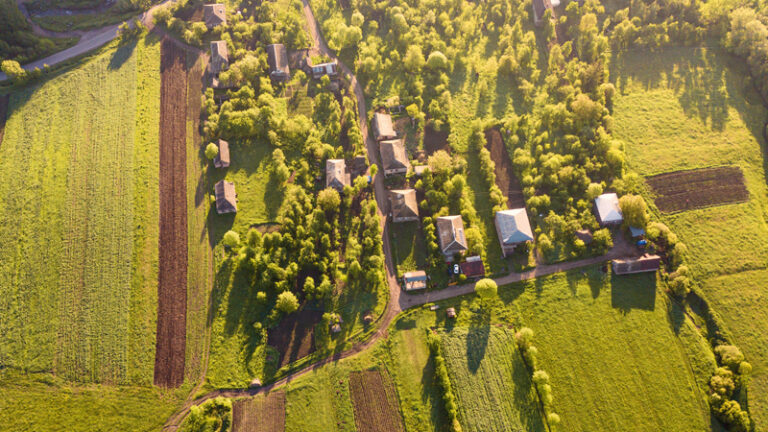Perhaps Americans were first exposed to the concept of a family vacation home in 1960, when Senator John F. Kennedy ran for president and spent time at his father’s family vacation home on the beach in Hyannisport, Massachusetts.
But you don’t have to be rich to develop a family lot: Increasingly, relatives and friends are pooling their money together to buy a few acres of land on which to build several homes, or they can buy a small plot and build a larger home to fit multiple families.
The San Francisco Chronicle recently reported that several tech workers have applied to build plots on a one-square-mile site in the city to build affordable housing for their employees and their families.
Popular with Millennials
Millennials, in particular, are embracing the idea: KIRO-TV reports that the multifamily trend is accelerating in Seattle’s housing market, where the average home price is about $900,000.
According to Google Trends, the term “family compound” is being searched at its highest rate in at least the past decade in 2024. Brian Durham, vice president of risk management and managing broker for Realty Group LLC and Realty Group Premier, said compounds are popping up all over the United States.
“The trend I’ve seen is multiple people buying large tracts of land and building multiple homes on the land,” Durham told Consumer Affairs. “The biggest advantage of this is that you get to pick your neighbors and you pool your money together.”
Interest is growing along with home prices
As existing home prices rise, interest in multifamily and “duette-style” homes is on the rise, says Kate Terrigno, a real estate agent with Corcoran HM Properties in Charlotte, N.C. Buyers like the idea of living close to family and friends, she says.
“Plus, another benefit for buyers is they’re getting newer construction in terms of finishes, ceiling heights and the overall style of the property,” she said.
“There are undoubtedly benefits to pooling funds to purchase a family home,” Turbo Tenant CEO Seamus Nally told ConsumerAffairs. “It’s a unique way for people to achieve homeownership through a collaborative effort. And these types of properties can often be easily converted into rental properties by turning one or more of the homes into short- or long-term rentals and generating income from the properties.”
In fact, investors have already picked up on this trend, building complexes and other housing complexes not for living but for income.
“I think it’s a good starting point for new investors to get exposure to this investment class,” says Nicholas Ritacco, portfolio manager and financial director at the IB Global Real Estate Fund. “It’s similar to stock investing. If you’re a beginner, you’d choose an index fund before picking individual stocks. Overall, you want to get into the market with limited risk at first.”
Things to consider
But Ritacco and other real estate experts we consulted said there are inherent risks to building a mixed-use development and pitfalls to avoid.Tanya Lechner, founder of the Sunshine Real Estate Team in San Antonio, says a mixed-use development may be very easy to sell.
“When you decide to sell in a few years, if it’s not a popular scenario, you may not see as much profit as you would with a single-family home,” Lechner said.
The problem is less pronounced in housing estates, where each house has its own separate title deed to the land it stands on, she said.
Nally says when purchasing a property like this with other buyers, it’s crucial to have a document drawn up and signed that outlines all the details, including how costs will be shared, who will live where, how responsibilities will be divided and expectations regarding the sale.
“Otherwise, buyers may find themselves in a difficult situation,” he said.
Durham cited zoning and financing as the biggest issues, noting that many areas have zoning regulations that limit the number of homes that can be built on one lot.
“These properties can be challenging because they’re not underwritten like a typical mortgage,” Durham said. “You’ll need lenders that offer these niche types of loans. You also need to consider the marketability of the property when it’s time to sell. Unique properties have a much smaller buyer pool.”

